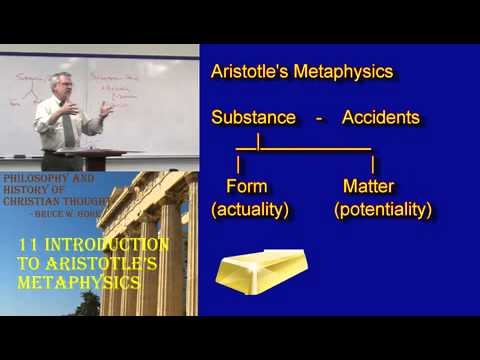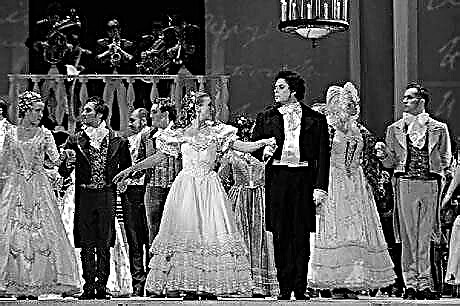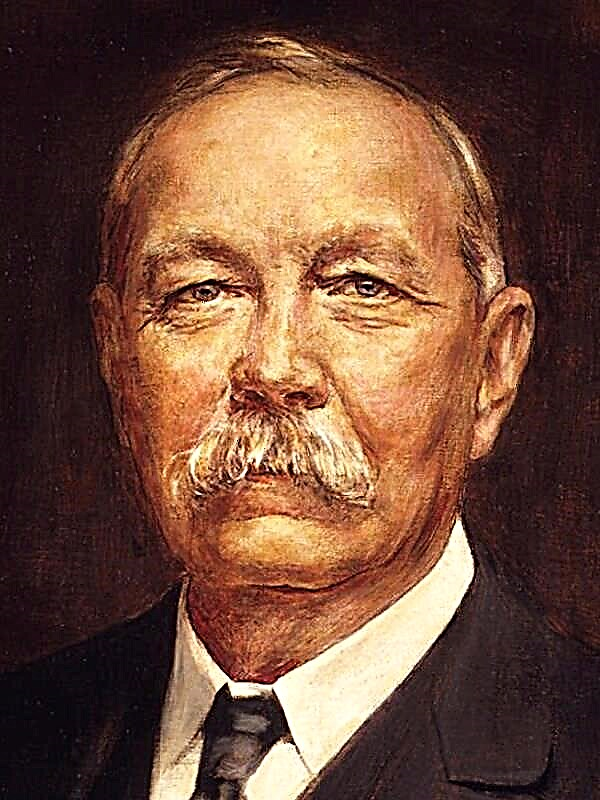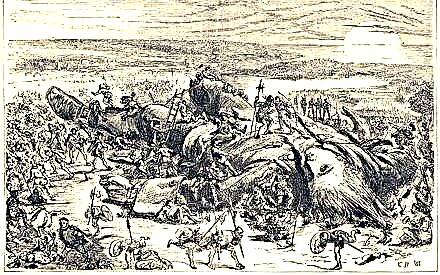: The narrator believes that small things can travel independently. An example of this is the case with pince-nez, which “left” the narrator, but when he returned, could not endure the punishment and crashed.
According to the narrator, “things live their own special lives” - they feel, think, talk and mimic their owners. Each of them has its own character. There are working things: a democrat glass, a reactionary stearin candle, an intelligent thermometer, a handkerchief - “a loser from the philistines”, a postage stamp - “forever young and fussy gossip”. They despise a hat with a stray actor’s face, a coat with a miserable little soul and light drunkenness, ladies' jewelry in which something parasitic is felt.
Deny that the teapot, this good-natured comedian, is a living creature, can only a completely insensitive person ...
Some small things, such as a matchbox, pencil or comb, love to travel. Studying their life for years, the narrator came to the conclusion that sometimes they "go out for a walk", and the duration of the trip can be any,
The wanderings of some things went down in history — the disappearance of the blue diamond or the work of Titus Livius, but they “partly involved the human will”. Small things go on their own.How many times, while reading in bed, the narrator lost a pencil, searched for it in the folds of the blanket and under the bed for a long time, and then found it between the pages of the book, although he remembered that he did not put it there.
People explain the loss of small gizmos by their own absent-mindedness, theft or do not attach any importance to this at all, but the narrator is sure that things live in their own world, parallel to the one invented for them by people. The narrator recalls a “startling incident” that happened once with his pince-nez.
Reading in his favorite chair, the narrator removed his pince-nez from his nose to wipe the glass, and ... it disappeared. Pince-nez was neither in the crevices of the chair, nor under it, nor in the folds of clothes, nor between the sheets of the book, nor on the nose of the narrator. Amazed at the monstrously ridiculous situation, the narrator undressed and thoroughly searched the clothes, then swept the floor, searched the next room, looked at the hanger and into the bathtub - there was no pince-nez anywhere. Recalling that he had heard the sound of a fall, the narrator crawled around the room for a long time, but did not find a single gap in the parquet where the damned pince-pen could fall.
About a week has passed. The servant washed the apartment and the back staircase, but did not find the pince-nez. The narrator told his friends about this incident. They laughed skeptically and tried to find pince-nez themselves, but they did not succeed in this at all. One of his friends, who had previously been a calm person, tried to use the inductive method, asked the storyteller a bunch of strange questions, thought for a long time, but didn’t come to any conclusion, left the storyteller in a gloomy mood and, according to his wife, moaned in his sleep all night.
Once the storyteller was sitting in the same chair and reading in a brand new, annoyingly tight pince-nez. His pencil fell. Frightened that this thing would also go on a journey, the narrator ducked behind him under the chair. The pencil lay against the wall, and next to it, clinging to the wall, stood gleaming pince-nez. His face with dusty glass was miserable and guilty.
How can one explain such a strange attachment of things to a person that forces them to return, even if they manage to deceive his alertness so deftly ...
It is not known where the pince-nez was hanging around, but by its appearance it was clear that it walked "for a long time, to exhaustion, to satiety and terrible mental fatigue."
The narrator severely punished the reveler: for several hours he left him against the wall and showed him to the servant and all his acquaintances, who only said that the pince-nez had “strangely fallen”. That same evening, removing the dusty folder of manuscripts from the top shelf of the cabinet, the narrator sneezed, his pince-nez fell to the floor and crashed.
The narrator preferred to consider this an accident rather than a suicide, to which the "public shame" arranged by him led to the unfortunate song. The storyteller is sorry for pince-nez, with him he read "a lot of good and stupid books" in which people have passions, reason and consciousness, and things have no right to independence.












